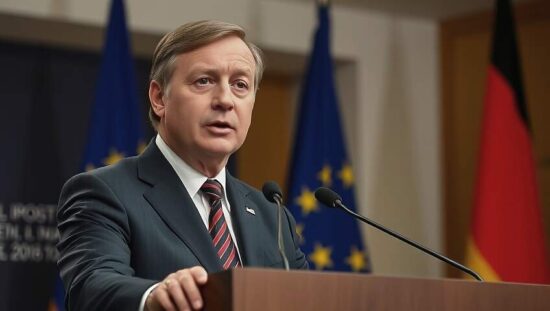A German Foreign Affairs Politician Criticizes the Country’s Middle East Policy
German politician Norbert Röttgen, a member of the Christian Democratic Union (CDU), has described the country’s Middle East policy as “failed” and called for “fundamental changes.” Röttgen, who is responsible for foreign policy as the deputy faction leader, told the FAS that Germany consistently confuses foreign policy with discussions of legal or ethical issues. He argued that international law is important for Germany’s foreign policy, but only one of many interests in conflict situations.
Röttgen emphasized that all parties must now draw conclusions from the fact that the previous approach has achieved nothing and enter a political discussion. He asked where Germany’s foreign policy, which takes into account the behavior of actors in the region in the country’s interest and according to its own conceptions, is in reality. “If you ask what the Middle East policy of the federal government of the last five years, going beyond the grand coalition, has achieved, one must conclude: practically nothing. When a conflict arises, we see our role in making völkerrechtliche evaluations. We do not exercise external influence through our foreign policy in this way” he said.
Röttgen responded to critics of Israel who rejected the attack on Iran as a breach of international law, saying, “One can only see a clear breach of international law by excluding the entire threat scenario posed by Iran.” He described the military aid from Washington as a “legitimate risk decision.” The United States had “decided to take the step and they will be proven right in the aftermath, because there is now a ceasefire and because diplomacy can start anew.”
Regarding the NATO summit this week, Röttgen said that the agreed-upon material reinforcement of the alliance would not be enough to establish military readiness. It would also require “a spiritual culture, a strategic culture.” The lack of this culture is “worse than the lack of our material and personnel defense resources.” A spiritual and strategic culture would only develop “when there is a political leadership in the country that lives and exemplifies this culture.”
Röttgen disagreed with statements from Brussels that the EU should appear more as a global player. “I am decidedly not of this opinion” he said. “We must first ensure the security of Europe. Before we have done that, I would consider it strategic overstretch to define further global goals for German and European security policy.” He added, “Now it is all about becoming a European regional and security power. This is a new historical role, after the post-war period was marked by America as the primary European security power.





